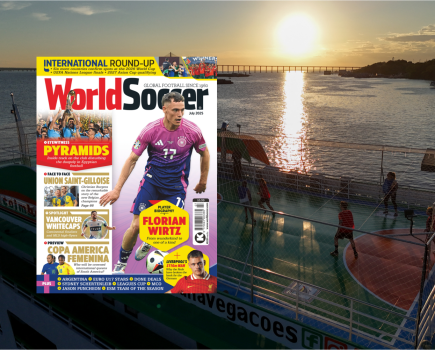 If there was a button marked “not Mourinho”, Carlo Ancelotti pressed it repeatedly. Real Madrid finally presented the Italian as their new coach, beginning a new era at the Santiago Bernabeu and another model too. They were heading in a different direction again. It had been 37 days since the president, Florentino Perez, announced Mourinho would be leaving; now they had the man they wanted to replace him.
If there was a button marked “not Mourinho”, Carlo Ancelotti pressed it repeatedly. Real Madrid finally presented the Italian as their new coach, beginning a new era at the Santiago Bernabeu and another model too. They were heading in a different direction again. It had been 37 days since the president, Florentino Perez, announced Mourinho would be leaving; now they had the man they wanted to replace him.
Perez had waited a long time for this moment. Twice before he had tried to sign Ancelotti. Third time might have been lucky – but it was not easy.
Paris Saint-Germain had resisted, and in the end Madrid were forced to pay to get their new boss. His assistant, though, was already on the payroll, and Zinedine Zidane will now sit on the bench alongside the man who coached him at Juventus.
By the end of his tenure, Mourinho’s enemies had amassed. His position at the club had become unsustainable. Although Perez continued to talk about the special pressure that is brought to bear at the Bernabeu, pointing the finger at outside influence, Ancelotti’s presentation made it clear that this was a break from the previous few years.
So too did the goodwill of the media’s reaction.
One journalist told the Italian that he had become known as the “peacemaker”. It was the first most had heard of it, including Ancelotti himself, but it lent itself to a headline. “I don’t think Madrid need a peacemaker and no one has called me that before,” the Italian said. “But it’s a nice title, so thanks.”
Good relations
On one level at least Madrid did need a peacemaker. Or at least that’s what they believed. There has been a sense of them trying to find a little “normality”, to draw a line under the last year or so. Much of what Ancelotti said seemed tailored to that. He talked about maintaining good relations with the squad, about the importance of Iker Casillas, who had been dropped by Mourinho, and called himself “a coach, nothing more”.
Mourinho had been in charge of all first-team affairs and there was much in the message now that broke with then. Ancelotti also insisted on the fact that he likes to work with young players and said that he wants to play spectacular football, based on dominating games and dominating possession.
Standard stuff in a way, but those were accusations levelled against Mourinho. Although his team broke a league goalscoring record and he had reeled off a list of youth teamers given their debut with him, Mourinho had been accused of being defensive, preferring to play on the break, and turning his back on young players. He had also been accused of having a problem with Spaniards – even though his most vociferous backer was Alvaro Arbeloa.
What came next suggested a new direction too. Madrid brought Dani Carvajal back from Germany. Isco then signed from Malaga. And Asier Illaramendi joined from Real Sociedad. The total cost, before the summer transfer market had even reached the half-way stage, was well over ¤60million. All of them are young, all of them Spanish, and all of them suited to a more patient, technical, possession-based style. Illaramendi and Isco had been two of Spain’s standout performers at the summer’s Euro Under-21 Championship in Israel.
Madrid and Barcelona strengthened even though they are already miles ahead of the rest. Everyone else did not just stand still, they went backwards. As usual, the most talented footballers elsewhere in the league had a choice: join Madrid or Barcelona or leave the country.
One man bucking the trend was David Villa, who departed Barcelona and joined last year’s third-placed finishers Atletico for just over €5m, but his was a special case. It may also have been the exception that proved the rule. He, after all, came to replace Radamel Falcao, who had gone to Monaco.
By Sid Lowe
Season starts: August 17, 2013
Season ends: May 18, 2014






